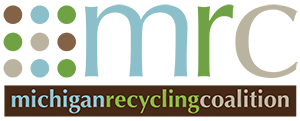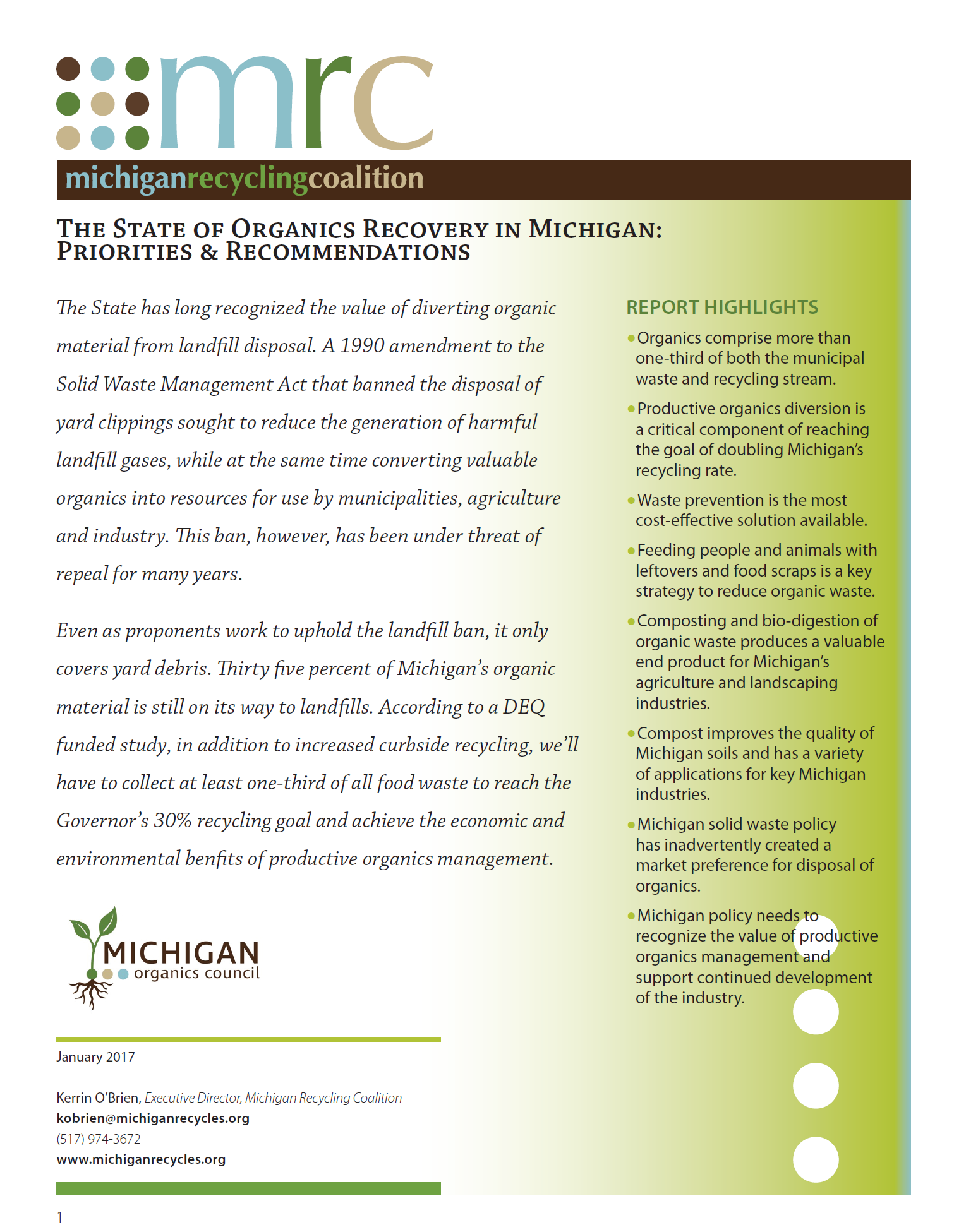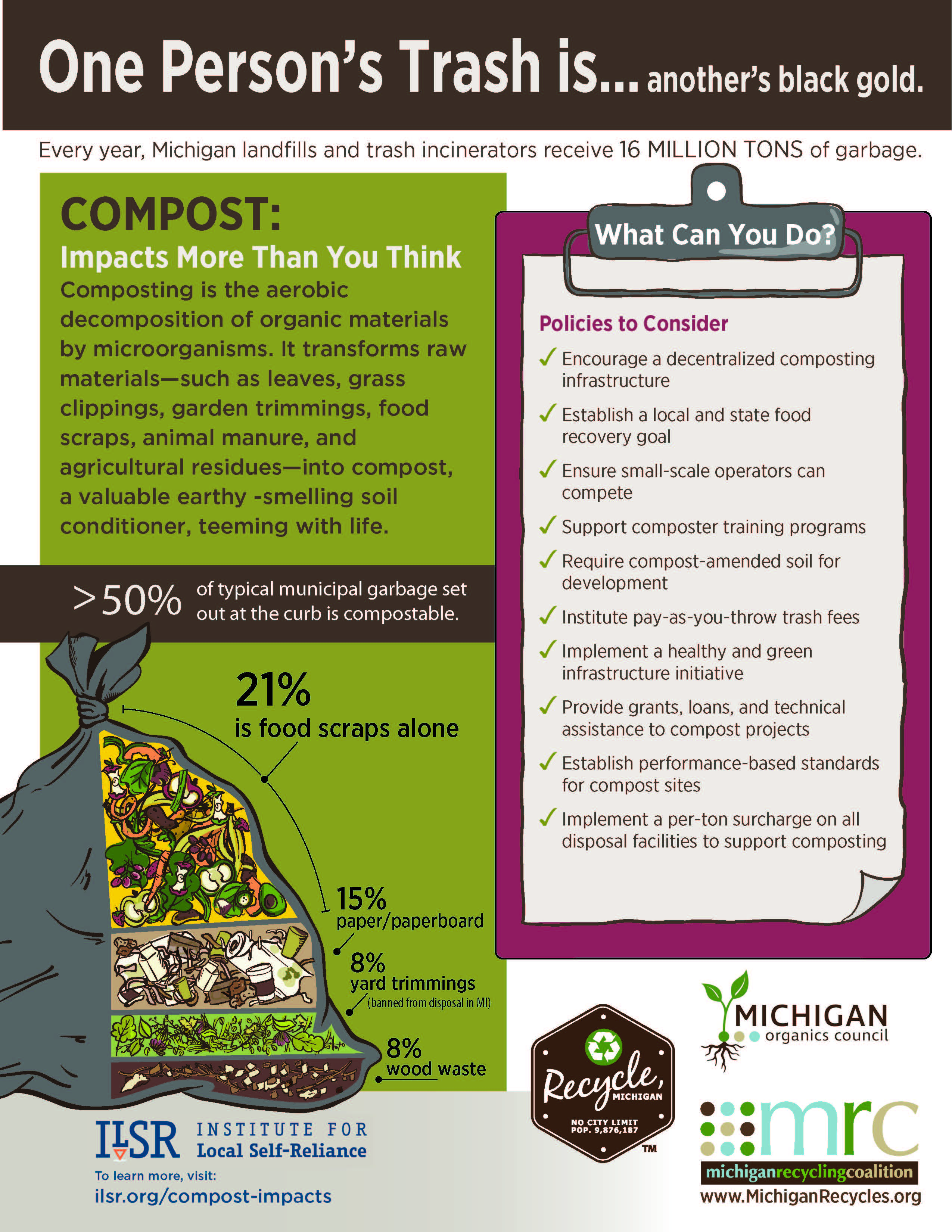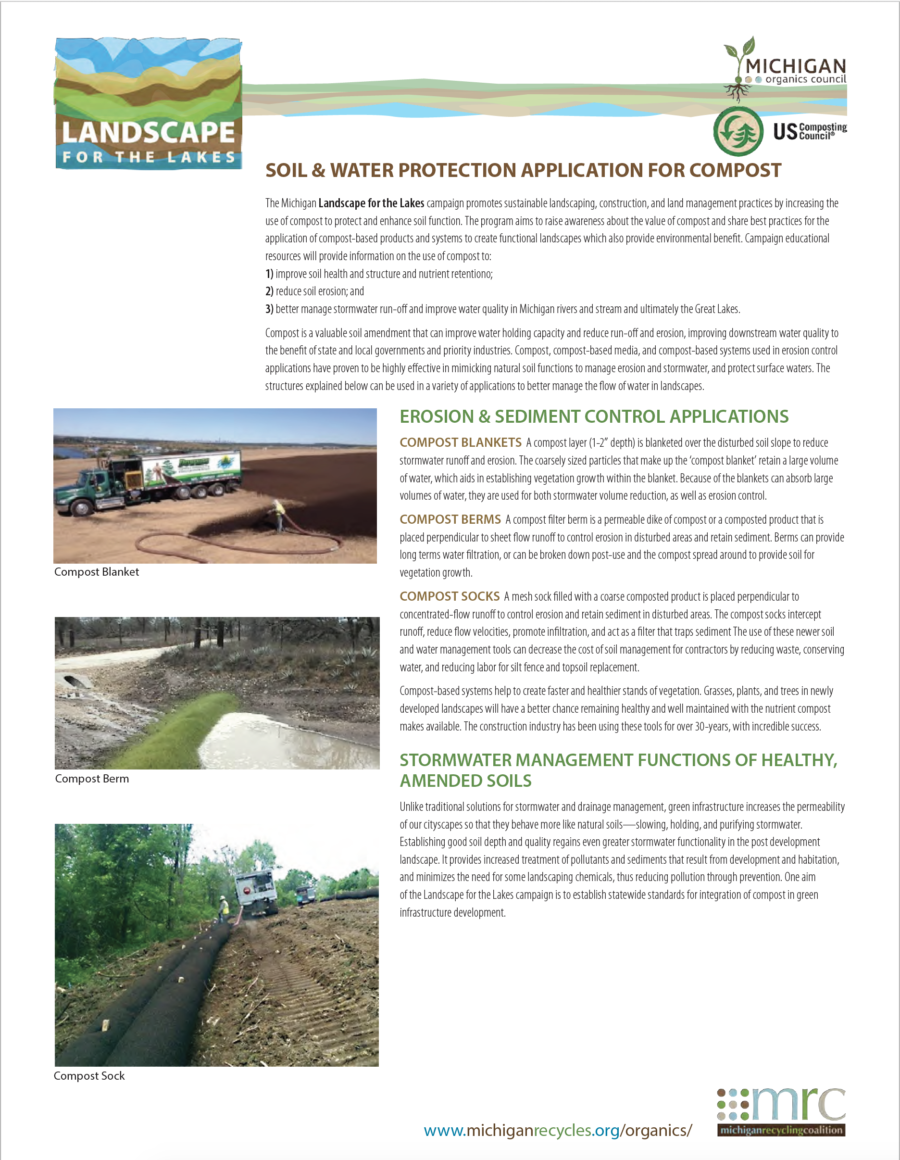Do you have a group interested in learning more?
If your group or organization is interested in learning more about how compost can benefit them in their industry, we are happy to provide a trained Landscape for the Lakes Champion to come share a presentation with them on how compost can help improve soil health and function, ultimately improving downstream water quality.
PRODUCTIVE ORGANICS MANAGEMENT
Organics comprise more than one-third of both the municipal waste and recycling streams in Michigan. In 1990, an amendment to the state's Solid Waste Management Act banned the disposal of yard clippings as an effort to reduce harmful landfill gases and convert organics into resources.
Organics are any material that is biodegradable, coming from either a plant or animal, and can be broken down into carbon dioxide, water, methane, or simple organic molecules by microorganisms and other living things. The benefits of sustainable management and utilization of yard debris and food waste-based compost products are broad and diverse.
Effective organics management can be accomplished through composting, in an open-air environment with relatively low capital investment or in a high-tech, fully-enclosed engineered bio-digestion system that can create both energy and compost. Regardless, creating compost from waste organics allows nutrients and organic matter to be readied for return to the soil, a proven practice for soil quality enhancement. Generators of organic waste will benefit from reduced disposal costs and liability, and in the case of anaerobic digestion, the energy created as the organics decompose has additional, measurable market value.
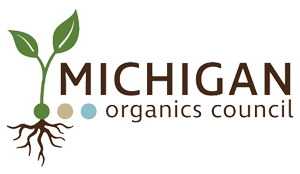
The Michigan Organics Council, through the Michigan Recycling Coalition, works to bring together organics generators, processors, and end users to network, share best practices, and promote diversion of organics and utilization of compost and other end products.
Michigan Organics Council members are also members of the Michigan Recycling Coalition who have an interest in promoting, educating, and advocating best management practices for organics and the production of compost products to the benefit of soil and environmental health.
Productive organics management is a critical component of reaching Michigan’s recycling goals.
Waste prevention is the most cost-effective solution available.
Feeding people and animals with leftovers and food scraps is a key strategy to reduce organic waste.
Composting and bio-digestion of organic waste produces a valuable end product for Michigan’s agriculture, landscaping, and other land-based industries.
Michigan solid waste policy has inadvertently created a market preference for disposal of organics, however, the State’s Yard Waste Ban is an important policy tool to move organics in the right direction.
Michigan policy needs to recognize the value of productive organics management and support continued development of the industry.
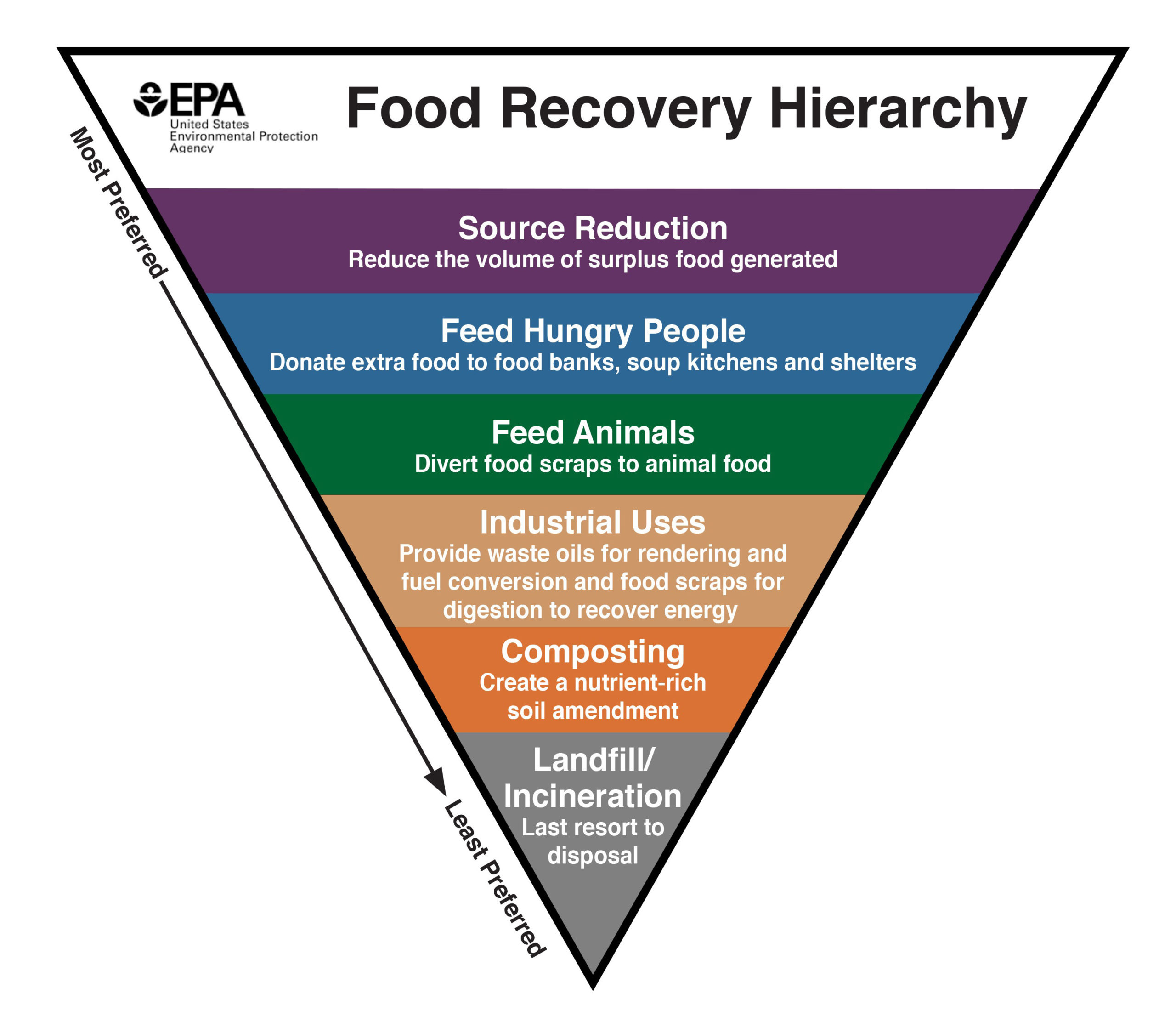
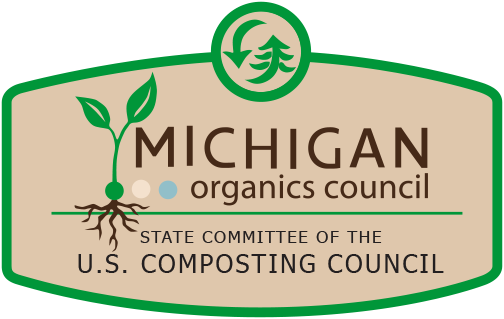
In November of 2017, the Michigan Organics Council voted to become Michigan's Charter Chapter of the U.S. Composting Council (USCC).
CLICK ON REPORTS BELOW TO ACCESS PDF
